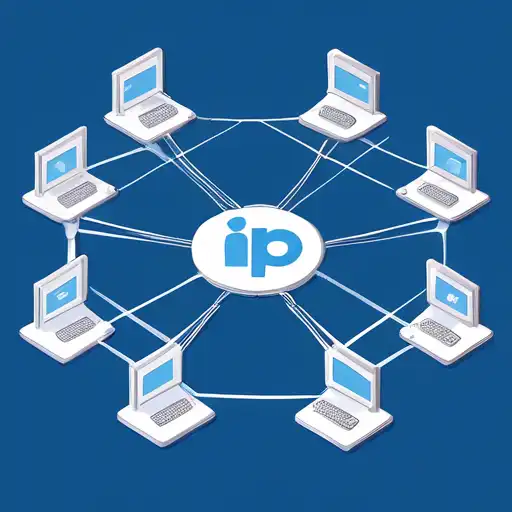Introduction to IP Addresses
In the vast world of networking, understanding IP addresses is fundamental. An IP (Internet Protocol) address is a unique identifier assigned to each device connected to a network, enabling communication between devices. This guide will walk you through the basics of IP addresses, their types, and their importance in networking.
What is an IP Address?
An IP address is a numerical label assigned to each device participating in a computer network that uses the Internet Protocol for communication. It serves two main functions: identifying the host or network interface and providing the location of the host in the network.
Types of IP Addresses
There are two main types of IP addresses: IPv4 and IPv6. IPv4 addresses are 32-bit numbers, typically displayed in decimal format as four octets separated by periods (e.g., 192.168.1.1). Due to the exponential growth of the internet, IPv6 was introduced, which uses 128-bit addresses, allowing for a vastly larger number of unique addresses.
Static vs. Dynamic IP Addresses
IP addresses can also be classified as static or dynamic. A static IP address remains constant, making it ideal for hosting websites or services. On the other hand, a dynamic IP address is assigned by a DHCP server and can change over time, which is common for residential internet connections.
Why IP Addresses Matter
IP addresses are crucial for the functioning of the internet. They enable devices to locate and communicate with each other, ensuring that data reaches its intended destination. Without IP addresses, the internet as we know it would not exist.
How to Find Your IP Address
Finding your IP address is straightforward. On most devices, you can find it in the network settings. For example, on a Windows PC, you can use the command prompt and type ipconfig to display your IP address.
Securing Your IP Address
While IP addresses are necessary for internet communication, they can also pose security risks. Hackers can use your IP address to launch attacks or track your location. Using a VPN can help mask your IP address, enhancing your online privacy and security.
Conclusion
Understanding IP addresses is a cornerstone of networking knowledge. Whether you're setting up a home network or pursuing a career in IT, grasping the basics of IP addresses will serve you well. Remember, the internet relies on these unique identifiers to function, making them an essential part of our digital world.
For more networking basics, check out our guide on Understanding DHCP and how it assigns IP addresses dynamically.
